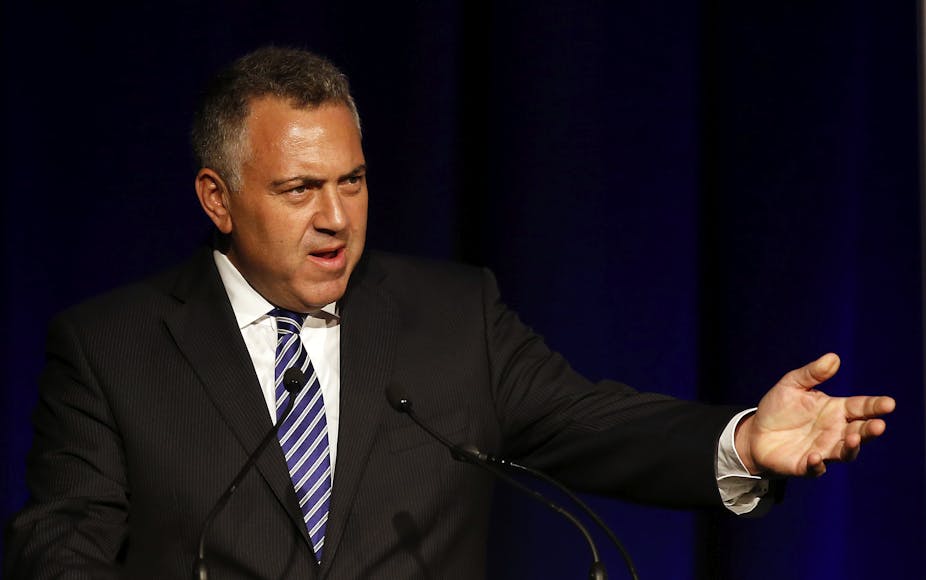Treasurer Joe Hockey today urged G20 finance ministers to focus on ending gaps between Australian and overseas taxation arrangements that are eroding the tax base.
He told an Institute of International Finance forum in Sydney that current international tax rules have not kept pace with the realities of the 21st century.
“Our tax systems were built for a world where business was predominantly confined to national borders,” he said.
“The G20 will work this year toward these changes to make sure our tax systems keep pace with the changing ways people do business.”
Mr Hockey said the starting point would be the automatic exchange of tax information to increase transparency.
There was a common agreement that something needed to be done, he said, and there was an expectation the G20 would agree on a comprehensive response.
“The strains are evident, and there is world-wide dissatisfaction with tax outcomes.”
“We need to make sure there are no gaps between our tax systems and we need to make sure we exchange tax information as a matter of course.”
John Passant, a former Assistant Commissioner responsible for the ATO’s input into international taxation, said base erosion is a major concern. But Passant, now at the Australian National University, said any fix would need to extend past the G20.
“Any agreed changes to fix the problem would need to be global.”
“And since the US as well as Singapore and Ireland and other quasi tax havens like the Netherlands may well lose revenue, such an agreement is unlikely to occur.”
Susan Harris-Rimmer, at ANU’s Asia Pacific College of Diplomacy, agreed it was important any agreement extended past OECD countries.
“This measure is especially desirable because tax authorities do not need to issue requests for tax information, it will just be automatic,” she said.
Automatic exchanges that covered all taxable activity – including dividends, royalties and salaries – were a good start to a transparent global tax system, she said.
Mr Hockey conceded the reforms were “ambitious and challenging” but pledged support for developing countries to be included in any new program.
Miranda Stewart, Professor of Law at the University of Melbourne and newly appointed director of the Tax and Transfer Policy Institute at ANU’s Crawford School, said historically countries had been “very poor” in cooperating over tax administration, but global attitudes were changing.
“It’s particularly good to see the treasurer talk about relationships with developing countries,” she said.
“It’s a good thing to hear that countries in the G20 propose to establish solid tax information exchange arrangements to support global tax cooperation and are explicitly going to discuss engagement and support for developing countries.”
But it was important whatever reforms were agreed on would not overburden businesses with requirements for information, Mr Hockey said.
Dr Harris-Rimmer said while there was an in-principle agreement that automatic exchanges were needed, there was disagreement about who would pay for it.
“Companies are concerned about the burden this would put on them and how much it will cost to comply,” she said. “US technology companies are especially resistant.”

